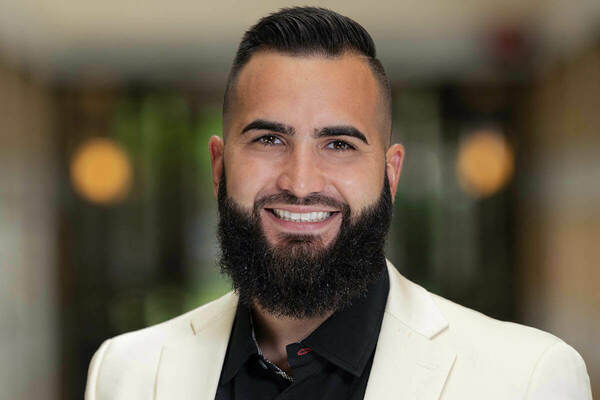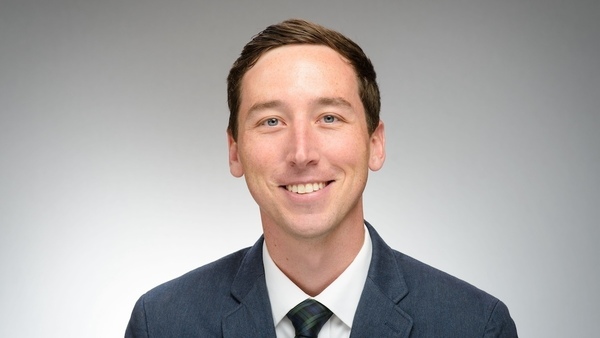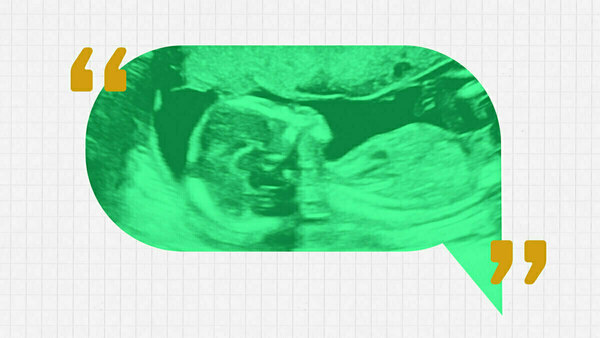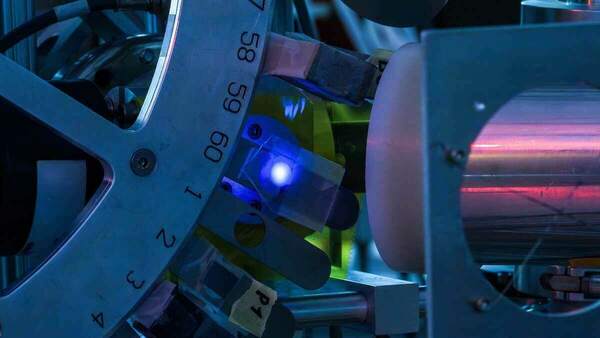Biseach Symposium Strengthens Cancer Research Partnership Between Notre Dame and University of Galway

A team of researchers from the University of Notre Dame (South Bend, Indiana, USA) joined scientists, engineers, and civic leaders at University of Galway (Galway City, County Galway, Ireland) as part of an ambitious transatlantic effort to transform cancer research and care. The gathering, known as the Biseach Symposium, marked a significant milestone in the Biseach Initiative, a strategic collaboration designed to build on the talent, cancer expertise, infrastructure, and innovative spirit of both universities to improve cancer outcomes globally.
The initiative is co-led by Sharon Stack, the Ann F. Dunne & Elizabeth Riley Director of Notre Dame’s Harper Cancer Research Institute, and Michael Kerin, Professor and Chair of Surgery at the University of Galway's Cancer Centre.
Moving from Ideas to Impact

Held over two days at University of Galway’s O'Donoghue Centre, the symposium featured research presentations, collaborative workshops, and high-energy "collision" sessions designed to spark new research projects and inter-disciplinary transatlantic collaborations. The goal was to foster deeper collaboration aimed at generating new approaches to cancer diagnosis, treatment, and care.
“This initiative is about taking on grand challenges in cancer research,” said Stack, who also serves as the Kleiderer-Pezold Professor of Biochemistry at Notre Dame. “And to do that, we need big ideas, but we also need to prepare and empower scientists and engineers to move from ideas to action—translating basic discoveries into better outcomes for patients.”
Kerin emphasized that the name Biseach—an Irish word meaning “to heal, make better, or improve”—embodies the core mission of the collaboration.
“All great research begins with a real clinical problem,” Kerin said. “Here in the west of Ireland, we serve one of the country’s most rural and economically deprived populations. Access to cancer care is limited, and survival rates are the lowest in the nation. Through the Biseach Initiative, we’re working with Notre Dame to develop therapies that not only meet our urgent local needs but have a global impact.”
Deepening a Transatlantic Partnership
Peter Keane, Mayor of Galway City, highlighted the broader significance of the initiative, tying it to a 2023 Memorandum of Understanding between the two universities.
"The 2023 Memorandum of Understanding between the University of Notre Dame and University of Galway marked a pivotal moment in our shared mission to build strong interdisciplinary cancer research collaborations," Keane said. "The vision behind that agreement was clear: to bring together the brightest minds across disciplines, borders, and institutions to tackle one of the most pressing health challenges of our time. Today, through the Biseach Initiative, we see that vision coming to life. This initiative, grounded in the shared goal of improving cancer outcomes through collaborative research, is not only advancing scientific discovery, but more importantly, it is giving hope and improving care for cancer patients and their families. And that is the true metric of its impact."

Keane also emphasized that the collaboration is important for each university's respective city and broader region.
"I want to reaffirm Galway City's commitment to supporting and strengthening the ties between our two universities, between our cities and indeed between our communities,” Keane said. “There is so much more that we can achieve together in research, innovation, education and indeed in enterprise. Let us continue to build on this strong foundation and let us deepen our partnerships."
Combining Research, Education, and Innovation

Among the attendees was Mark Lawler, Associate Pro-Vice-Chancellor and Professor of Digital Health at Queen’s University Belfast, who underscored the importance of unity in cancer research.
"This collaboration is all about the people,” Lawler said, “Yes, we're each trying to do the right thing, but it's also about how we work together. It's no use if we're competing against each other. Cancer is a global issue; we have to compete together against cancer."
Faculty talks during the symposium covered a wide range of clinical and research advances—including novel approaches to treating glioblastoma, lymphoma, ovarian cancer, multiple myeloma, colorectal cancer, and breast cancer. Notre Dame researchers highlighted the university’s strengths in imaging, drug discovery, genomics, and bioinformatics. University of Galway faculty discussed plans to provide cancer tissue samples to enhance Notre Dame’s research and also shared updates about new investments in the university’s Institute for Clinical Trials and Institute for Health Discovery and Innovation, which will help streamline development of therapies and technologies, by spanning the pipeline of cancer research from fundamental and discovery research, biomedical engineering, and applied and translational research.
Fostering a Research Friendship
To support the Biseach Initiative, dozens of researchers from the two universities have crossed the Atlantic, often for long-term stays. The collaboration has also been especially beneficial for several undergraduate and graduate students who have had the opportunity to conduct research in labs in both locations.

Kerin noted that this exchange has resulted in a trusting relationship that drives greater innovation. “One thing that strikes me about this collaboration is the friendship and the ability to work together that we have developed. If you have that, you can achieve an enormous amount,” he said.
Stack agreed, stating, "Research cures cancer. Every new scan, every new surgical tool, every new therapy comes from basic lab research at one point or another. I can't think of a better group to collaborate with, and I can't think of a better place to innovate. We're stronger together."
Contact
Brett Beasley / Research Content Strategy Program Director
Notre Dame Research / University of Notre Dame
bbeasle1@nd.edu / +1 574-631-8183
research.nd.edu / @UNDResearch
About Notre Dame Research
The University of Notre Dame is a private research and teaching university inspired by its Catholic mission. Located in South Bend, Indiana, its researchers are advancing human understanding through research, scholarship, education, and creative endeavor in order to be a repository for knowledge and a powerful means for doing good in the world. For more information, please see research.nd.edu or @UNDResearch.
Latest Research
- Doctoral student Joryán Hernández to receive inaugural Sr. Dianna Ortiz, OSU Peacemaker AwardJoryán Hernández, a peace studies and theology doctoral student at the University of Notre Dame, was tapped as the first-ever recipient of the Sr. Dianna Ortiz, OSU Peacemaker Award from Pax…
- The Institute for Educational Initiatives at Notre Dame Launches Free Math App to Help Teachers Strengthen Students’ Understanding of Numbers and OperationsThe Number Sense Assessment app gives educators quick, research-based insights to target instruction and improve student outcomes Notre Dame, IN — Researchers at the Institute for Educational Initiatives at the University of Notre Dame have launched…
- U.S. Senator Todd Young on bridge-building in Congress and Notre Dame’s role in strengthening civil discourseThe University’s home state Senator discusses the importance of fostering common ground, on Capitol Hill and on campus
- Notre Dame researchers to shed light on the Brazilian Amazon, conflict resolution, microplastics, and moreNotre Dame Research (NDR) has selected five awardees of the Research and Scholarship Program – Regular Grant (RSP-RG) and five awardees of the Research…
- First impressions count: How babies are talked about during ultrasounds impacts parent perceptions, caregiving relationshipPsychologist Kaylin Hill studied the impact of a parent’s first impression of their baby during an ultrasound exam. The words used by the medical professional to describe the baby (positive or negative) influence how the parents perceive their baby, relate to them after they're born and even how that child behaves as a toddler. The research has broad implications for how we train medical professionals to interact with expectant parents, as well as how we care for parents during the perinatal period when they are most susceptible to depression.
- Researchers at Notre Dame detect ‘forever chemicals’ in reusable feminine hygiene productsWhen a reporter with the Sierra Club magazine asked Graham Peaslee, a physicist at the University of Notre Dame, to test several different samples of unused menstrual underwear for per- and polyfluoroalkyl substances (PFAS) in 2019, the results fueled concern over chemical exposure in feminine hygiene products — which ultimately ended up in a $5 million lawsuit against the period and incontinence underwear brand Thinx. Then in 2023, the New York Times asked Peaslee to test 44 additional period and incontinence products for PFAS, a class of toxic fluorinated compounds inherently repellent to oil, water, soil and stains, and known as “forever chemicals” for their exceptionally strong chemical and thermal stability. Measurable PFAS were found in some layers of many of the products tested — some low enough to suggest the chemicals may have transferred off packaging materials, while others contained higher concentrations, suggesting the chemicals were intentionally used during the manufacturing process. In the meantime, another group of researchers published a study that found PFAS in single-use period products, leading Peaslee and his lab to widen their investigation into all sorts of reusable feminine hygiene products — often viewed as an eco-friendly option by consumers. Now, the results of that study have been published in Environmental Science & Technology Letters.













